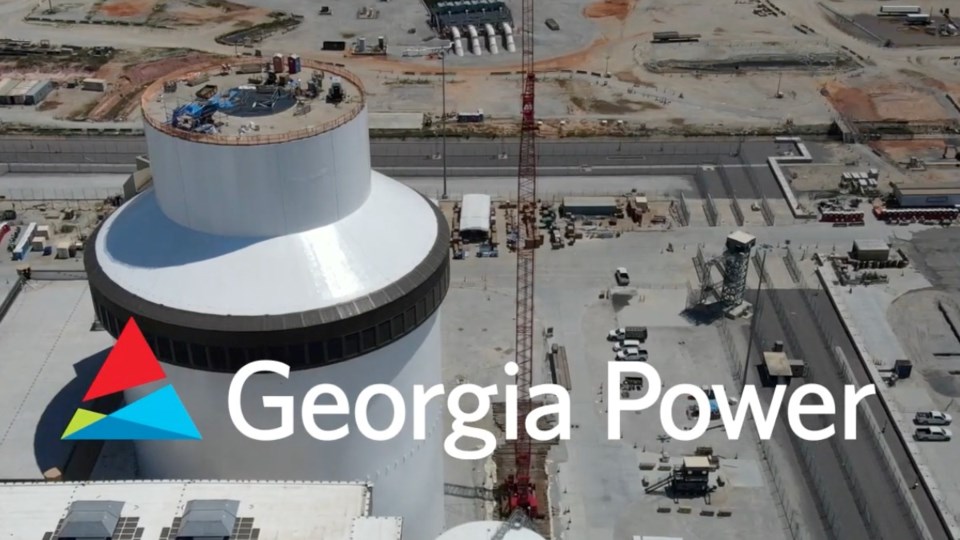Georgia energy regulators unanimously approved a plan last week to let Georgia Power pass on to customers almost $7.6 billion of its costs in building two additional nuclear reactors at Plant Vogtle.
The Atlanta-based utility agreed in August to reduce the costs it was asking the state Public Service Commission (PSC) to declare "reasonable and prudent" by about $2.6 billion after years of delays and cost overruns that more than doubled the price tag from the $14 billion the commission authorized back in 2009.
The first of the new reactor units at the plant south of Augusta went into service at the end of July. The second is due to follow by the end of March. The project will increase the average residential customer's bill by $8.95 per month.
Commissioner Lauren "Bubba" McDonald, the only member of the PSC who was on the board in 2009, acknowledged the difficulties the project has faced during the last 14 years.
"It has been a journey," McDonald said before Tuesday's vote. "(But) for the first time in 34 years in America, a nuclear plant has been built. ... We suffered the pain, but we're also going to enjoy the benefit."
"The Vogtle ... nuclear expansion project represents a long-term investment for our 2.7 million customers and Georgia, providing clean, safe, reliable, and emission-free energy for decades to come," Georgia Power added in a statement.
"We believe this decision by the Georgia PSC acknowledges the perspectives of all parties involved and takes a balanced approach the recognizes the value of this long-term energy asset for the state of Georgia and affordability needs for customers."
Representatives of environmental and consumer advocacy groups that signed onto the agreement with Georgia Power pointed to the company's commitment to significantly expand its energy efficiency programs and increase the number of seniors who will qualify for its bill-relief program.
"We are pleased the commission included programs that will provide the most vulnerable customers with some bill relief," said Codi Norred, executive director of Georgia Interfaith Power and Light. "That being said, Georgia Power customers have and will continue to pay heavily for Vogtle's budget overruns.
"After Vogtle, we hope the commission will double down on their support of cost-saving renewable options like solar and battery storage."
Bryan Jacob, representing the Southern Alliance for Clean Energy, complained during a hearing last week that the August agreement fails to set forth how the costs of the Vogtle nuclear expansion will be allocated between residential and small-business customers and large industrial customers.
"Georgia Power has the obligation to prove its rate allocation is just and reasonable," he said.
Jacob also suggested the commission should have required Georgia Power to credit residential and small-business customers for what they've already paid up front for the project.
Nuclear Watch South, one of the environmental organizations opposed to the agreement, said the rate increase for Plant Vogtle is one of several Georgia Power has received during the past year.
"The smart money knows nuclear energy is a bad investment," said Stephen Wing, a member of Nuclear Watch South's Board of Directors. "Yet the profit on that investments goes to Georgia Power shareholders ... while we get stuck with a 26% rate hike to cover the project's construction mistakes, on top of three other rate hikes in the past year alone."




